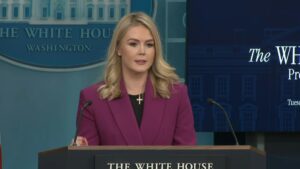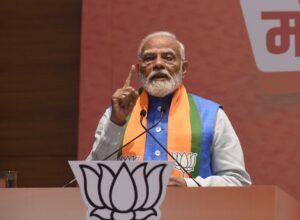Nigerians grapple with soaring food costs, devouring 59% of income in economic crisis
ABUJA, Nigeria (MNTV)- A recent report by international e-commerce organization Picodi has shed stark light on the escalating cost-of-living crisis gripping Nigeria, revealing that households are now allocating a staggering 59% of their income to food purchases.
This alarming statistic underscores the deepening economic challenges facing the nation, where rising inflation, the rapid devaluation of the Naira, and persistent supply chain disruptions have created a perfect storm of soaring food prices, reports Premium Times.
This is likely to cause difficulties to Nigeria’s large Muslim populace just as the month of Ramadan ends and Eid festivities are set to begin in the country where more than half of the population subscribes to the Islamic faith.
The report paints a grim picture of the financial strain experienced by ordinary Nigerians, who are increasingly forced to prioritize basic sustenance over other essential needs. The ripple effects of this crisis are felt across all sectors of society, impacting consumer spending, business operations, and overall economic stability.
Economic analysts and experts have identified several key factors contributing to this dire situation. One prominent issue is the escalating insecurity plaguing many agricultural regions. Banditry, kidnapping, and communal clashes have displaced farmers, disrupted planting and harvesting cycles, and created a climate of fear that deters investment in the agricultural sector.
Furthermore, inadequate infrastructure, including poor road networks and limited access to storage facilities, exacerbates supply chain bottlenecks, driving up transportation costs and food prices.
“The security situation in the northern regions is a major impediment to agricultural productivity,” stated Dr. Olumide Adedayo, an agricultural economist at the University of Ibadan. “Farmers are afraid to go to their fields, and this directly translates to reduced output and higher prices. We need urgent government intervention to restore security and confidence in these areas.”
Another critical factor is the limited access to credit faced by many smallholder farmers. Without adequate financial support, they struggle to invest in modern farming techniques, purchase essential inputs, and expand their operations. Experts emphasize the need for targeted government interventions, such as subsidized loans and grants, to empower local farmers and boost agricultural productivity.
“The government needs to prioritize investment in agriculture,” stressed Mrs. Aisha Mohammed, a financial analyst based in Lagos. “This includes providing access to affordable credit, improving infrastructure, and promoting the adoption of modern farming technologies. By supporting local farmers, we can enhance food security and reduce our reliance on imports.”
As the crisis persists, many Nigerians will not be able to partake of traditional festivities this Eid season. With limited buying power, traditional Eid feasting for families, neighborhoods and communities will be rare.








